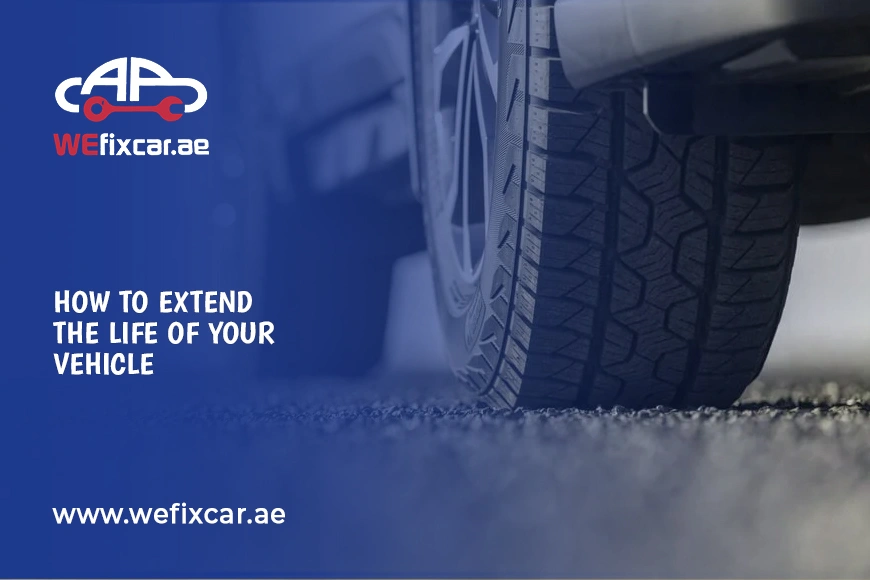How to Extend the Life of Your Vehicle
Your car is one of the most valuable investments you make, and ensuring vehicle longevity requires consistent maintenance and care. By following best practices and implementing simple yet effective strategies, you can enhance your car’s performance and keep it running smoothly for years to come. Here are some expert-backed tips to help you maximize your vehicle’s lifespan.
Want to Improve your Vehicle’s Lifespan? Follow our tips & Extends Your Vehicle’s Longevity!
1. Follow a Regular Maintenance Schedule
Routine maintenance is key to ensuring your car remains in optimal condition. Follow the manufacturer’s recommended service intervals for oil changes, brake inspections, and fluid checks. Regular servicing can prevent major breakdowns and costly repairs.
Key Maintenance Tasks:
- Oil Changes: Change engine oil and filter at recommended intervals to ensure proper lubrication and reduce engine wear.
- Brake Inspections: Regularly check brake pads and rotors to maintain effective stopping power.
- Fluid Levels: Monitor transmission, coolant, and brake fluid to keep your car running efficiently.
2. Drive Smoothly and Responsibly
Aggressive driving habits, such as rapid acceleration and hard braking, can cause unnecessary strain on your car’s engine and transmission. Drive smoothly to enhance vehicle longevity and fuel efficiency.
Driving Tips:
- Avoid sudden starts and stops
- Stick to speed limits to reduce engine stress
- Use cruise control on highways for steady speed management
3. Keep Your Car Clean Inside and Out
Regular washing and waxing protect your car’s exterior from rust, corrosion, and damage caused by dirt and road debris. Similarly, maintaining a clean interior prevents wear and tear on seats and dashboard components.
Cleaning Tips:
- Wash your car weekly to remove dirt and grime
- Wax every three months to protect the paint
- Vacuum and clean the interior to prevent damage from spills and dust buildup
4. Check and Maintain Your Tires
Proper tire care improves handling, fuel economy, and safety while reducing wear on the suspension and braking system.
Tire Maintenance Tips:
- Check tire pressure weekly and maintain the recommended PSI
- Rotate tires every 5,000–7,000 miles to ensure even wear
- Inspect tread depth and replace worn-out tires promptly
5. Keep an Eye on Warning Lights
Modern vehicles come with dashboard warning lights that indicate potential issues. Ignoring them can lead to costly repairs and reduced performance.
Common Warning Lights:
- Check Engine Light: Indicates engine or emissions-related problems
- Battery Light: Suggests charging system issues
- Oil Pressure Light: Signals low oil pressure, requiring immediate attention
6. Store Your Car Properly
If you’re not using your car for an extended period, proper storage is essential to prevent battery drainage, tire damage, and fuel degradation.
Storage Tips:
- Keep your car in a covered or garage space to protect it from weather elements
- Use a battery maintainer to prevent battery depletion
- Fill up the fuel tank and add a stabilizer to prevent fuel breakdown
7. Use Quality Parts and Fluids
Always use high-quality replacement parts, oil, and fluids recommended by your vehicle manufacturer. Substandard parts can compromise performance and shorten your car’s lifespan.
Best Practices:
- Use synthetic oil for better engine care
- Opt for original manufacturer parts for longevity
- Ensure proper coolant and brake fluid for optimal efficiency
Want to ensure your car stays in top condition? Call us now & get expert care!
Final Thoughts
Enhancing vehicle longevity requires consistent maintenance, responsible driving, and proactive care. By following these expert tips, you can improve your car’s performance and extend its lifespan while avoiding costly repairs. Prioritizing your car’s health today will ensure it remains reliable for years to come.
FAQs
1. How often should I change my engine oil?
It depends on your vehicle and driving conditions, but typically, oil changes are recommended every 5,000 to 7,500 miles.
2. What is the best way to store my car for long periods?
Store your car in a covered space, keep the battery charged, and use a fuel stabilizer to prevent deterioration.
3. How can I improve my car’s fuel efficiency?
Maintain proper tire pressure, drive smoothly, and keep your engine properly tuned to enhance fuel efficiency.



